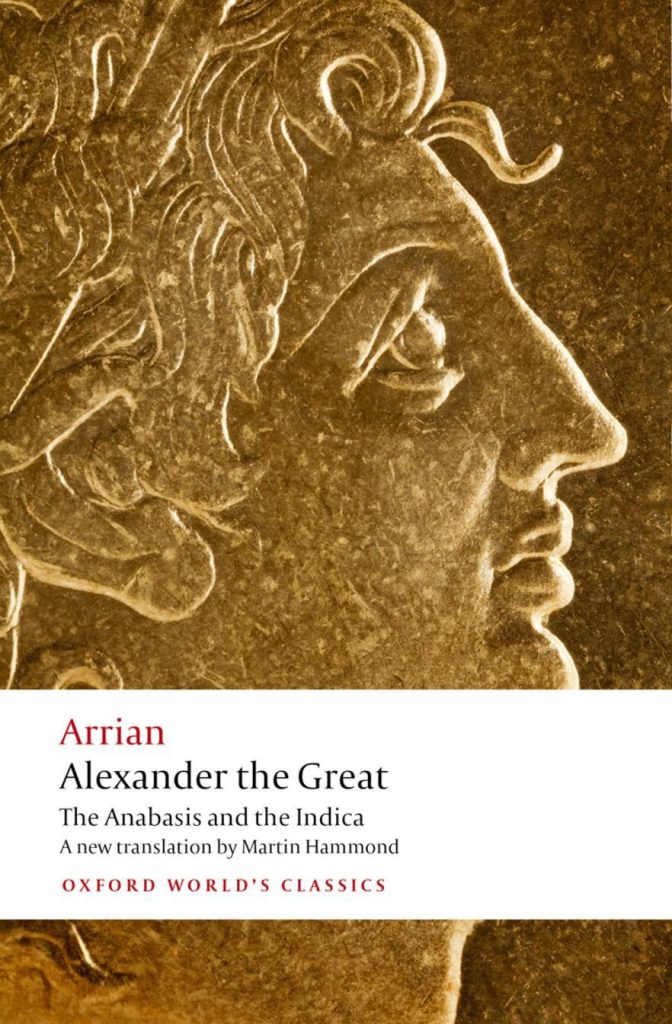

Arrian’s Anabasis is a fantastic read, exactly the kind of book that might get generally interested readers hooked on history. The central character, Alexander The Great, is indeed something of a Titan.
We might think him a power-crazed warmonger, but Arrian pulls no punches when he says ‘Anyone who vilifies Alexander … should first make some comparisons and reflect on them. Who is he, and what has he achieved… ? By comparison the critic is an insignificant creature, toiling away at some insignificant work, and not even master of that.’ Woah… that’s told us!
Arrian’s is primarily a military tale, of travel, adventure and conquest. This does, to some degree, give it a certain vintage feel, but in many other ways Arrian feels remarkably modern. Part of this must be down to a good translation, that renders Arrian in easy to read and immediate English. But surely this must also be down to Arrian’s writing style itself, which is excellent (‘fast moving like it’s subject’ as the back cover notes aptly observe).
Arrian is very clear about the sources he is mainly dependant upon, and his view on the dubious nature of many tales – that he nonetheless relates – from less reliable sources. ‘I have no evidence… and I see no point in speculation’ is a typical phrase, giving a characteristic flavour of Arrian’s basically rational approach.
Whilst he clearly admire’s Alexander, he can be, and indeed is, critical. His position is perfectly summed up in his own closing words: ‘although I too have censured some of Alexanders actions in my history, I make no apology for my admiration of the man himself.’
As an avid reader of Napoleonic history I could see many parallels between Bonaparte and Alexander: the quick thinking, quick moving, intuitive approach, the charisma and ability to lead an army as much by force of personality as by skill. Alexander even has his own 1812 moment, as his army is thinned out during the crossing of the deserts of southern Iraq.
Without giving away too much for interested readers who don’t know the story (and great history like this is, to my mind, at least as – and arguably way more – exciting than fiction), I will note that there are some fascinating moments when Alexander encounters dissent and views different from his own.
Many great military leaders fail to circumscribe their own ambition, and bring about their own downfall and the ruination of huge swathes of humanity with them, and such views were put to Alexander at several points. What did he make of such arguments, and how did he respond? Read this book if you’re interested to find out.
This is a classic ‘great man’ story, and suitably exciting. Modern historians can sometimes be dry as dust and neither very compelling or interesting, even whilst they may quite admirably be seeking after a truer picture of history. It’s difficult for a general reader like me to evaluate the veracity of Arrian’s account, but I can certainly tell you that it’s a corking good read.
